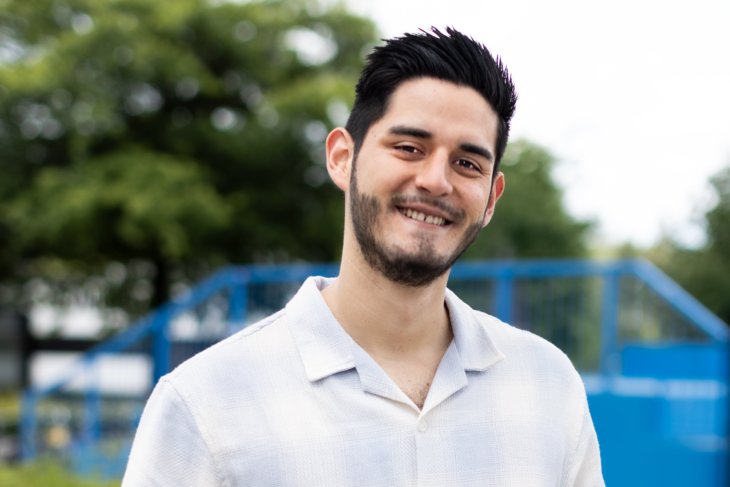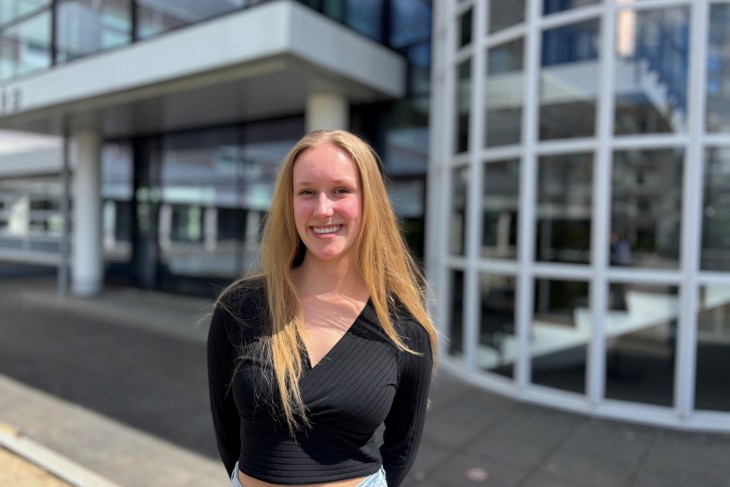“Back in high school in Ecuador, I was really into music. I even made a living from it for a while: my band used to play Latin music at weddings and parties. But I was missing maths and started looking into economics degrees. That’s when I talked with a friend who happened to study industrial engineering in Ecuador: the idea of improving production processes immediately clicked with me!
As I love travelling, I started by looking at universities abroad, mainly in the USA and Canada, but I eventually turned my attention to Europe. I imagined it would be cool to just grab my backpack and hop on a train to another country. In an online search, I came across the University of Twente. Honestly, the campus photos were enough to convince me to study here. After finishing my Bachelor’s in Industrial Engineering & Management, continuing with the Master's in Industrial Engineering & Management at the University of Twente was a natural choice.
Maths and modelling
I couldn’t be happier with my choice of this study programme because it involves a lot of maths and modelling: exactly what I love! It’s awesome to dive into real-life problems using mathematical models. For example, one major challenge in supply chains is balancing costs with environmental impact. If a delivery route is inefficient, it leads to more CO2 emissions, but the cheapest route might produce even more emissions. Imagine trying to plan a delivery truck's route with hundreds of stops: finding the best route can take forever with traditional methods. I’m learning to use algorithms to minimise both costs and emissions, which is super valuable for creating sustainable and efficient supply chains.
Besides, I love the freedom of tailoring the programme to my interests. There are three specialisations, and I’m focusing on Production & Logistics Management, but I’m also taking elective courses from other areas: the more tools I learn, the better I can tackle complex problems. For example, I took a civil engineering course focused on transport, where I learned to use maths to predict traffic patterns. Another course on optimising healthcare processes was super engaging: I had to make tactical decisions about staffing and room allocation and then handle the operational planning like patient scheduling.
Practical problems
This master’s teaches me to practically approach complex problems by first breaking them down mathematically and then using different methods to find solutions. Some problems are so big that finding the best answer could take forever.
For example, I'm training an algorithm to make smart decisions over time. My project team is working on a problem proposed by two of my professors who developed a serious game based on it. A huge number of containers arrive at the Port of Rotterdam on the same day, all with specific destinations, such as Miami or Antwerp, and tight deadlines. The challenge is to decide how to load these containers onto ships, trucks, or trains. For example, one ship can only carry eight containers, so if it’s full, the rest have to be sent by other means. Our goal is to figure out how to minimise costs over 100 days. It’s fascinating to see how our AI model learns and gets better at optimising the process.
Looking ahead
As I move forward, I’d love to continue optimising logistics and transport, but I'm still figuring out exactly what kind of work I want to do and where. I'll either look for a job or pursue a PhD: either way, I feel this master’s has laid a solid foundation for my career.”




